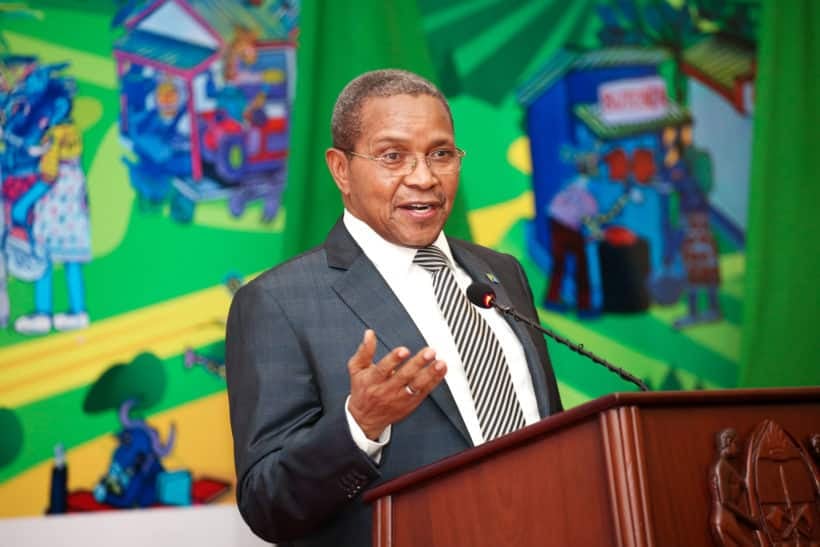As we approach the 2030 deadline for the achievement of critical Sustainable Development Goals, including the eradication of hunger and poverty, many opportunities are emerging for Africa to substantially reduce its food insecurity, create well-paying jobs, and promote the economic success of its women and youth, through transformed agricultural and food systems.
Indeed, the reality that the continent’s population is rapidly increasing – to reach 2.4 billion by 2050 – highlights the need for increased and sustainable agricultural production, alongside systems for delivering food around the continent – ultimately leading to food security and gainful employment.
Luckily, Africa has nearly all the natural resources needed to transform its agricultural productivity, including an agile and enlightened youthful population, large portions of arable land, and a climate profile that favors agricultural production when complemented with techniques like soil nutrient replenishment and irrigation.
However, the transformation that we seek will only come forth through dedicated leadership from governments, the private sector, development organizations, scientists, and farmer organizations. These stakeholders are critical in promoting and instituting a favorable policy environment for agriculture sector growth; spurring technology and innovation, and advancing financing and market opportunities.
Thankfully, around Africa, we have numerous participants that are actively driving transformation within their different specializations. For example, in Uganda, previous Africa Food Prize (AFP) winner Dr. Emma Naluyima, is a super-trainer on closed-loop farming, with her 1-acre enterprise serving as a global showcase of profitable and environmentally friendly agriculture. Across the continent, in Senegal, another AFP Laureate Baba Dioum is widely-recognized for his voice in policy development, a voice that has promoted cross-border agricultural trade in West Africa and helped to significantly advance the trade dimension of the Comprehensive Africa Agriculture Development Programme (CAADP).
I also must recognize the outstanding leadership of AGRA President Dr. Agnes Kalibata in the transformation of Africa’s food security and agricultural development, through her previous work as Rwanda’s agriculture minister where she, in a remarkably short time, turned the country into a farming success story. Under her leadership, AGRA has grown into a pioneering institution that is driving the transformation of Africa’s smallholder farmers’ work from a struggle to survive into thriving enterprises. Now at the beginning of its third strategic period, we expect from the institution interventions that increase farmers’ access to modern inputs, technologies and production knowledge; financing, and well-paying markets.
Alongside AGRA, the International Institute of Tropical Agriculture (IITA), and the International Crops Research Institute for the Semi-Arid Tropics (ICRISAT), also stand out for their steadfast and inspiring
commitment to a research agenda that aligns with Africa’s traditions, and the evolving needs of African farmers and consumers. There are many more individuals and organizations that are doing exceptional work in driving the change that Africa desires.
It is in recognition of such commitment that the AFP was founded nearly 18 years ago by various food systems partners, including AGRA, and has since feted over 26 deserving laureates from 10 African countries – including Naluyima, Dioum, Dr. Kalibata, IITA and ICRISAT. The US$100,000 award has consistently been issued even through the troublesome years of the COVID-19 pandemic. Its relevance in Africa’s annual awards calendar has been majorly sustained by its stellar administrative and selection panel led, until now, by H.E. Chief Olusegun Obasanjo, the former President of the Federal Republic of Nigeria, a cherished African leader and a well-respected farmer.
H.E. Chief Obasanjo’s stewardship of the African Food Prize for the past seven years, has been nothing short of a meticulous show of exemplary leadership. It is, therefore, with great pride that I accepted to take over from him as the chair of the AFP committee, a gigantic task, but which I am ready for, assured by the support of the exceptional team he bequeathed me. On which note, I invite all food system champions in Africa to join me in wishing the good Chief all the best as he continues leading the continent’s food systems transformation in many other different capacities.
Finally, it is with great pleasure that I now invite applications and nominations for the 2023 prize, which will be issued at Africa’s Food Systems Summit (AGRF) in my home country, Tanzania, in September. I am eager to see the quality of nominations that will make it to the final panel. I am also calling upon everyone in Africa and beyond to keenly engage with the AFP process and to continue emulating its laureates in leading the change required to drive food systems transformation for Africa’s prosperity. AFP nominations page: https://africafoodprize.org/nominate/
